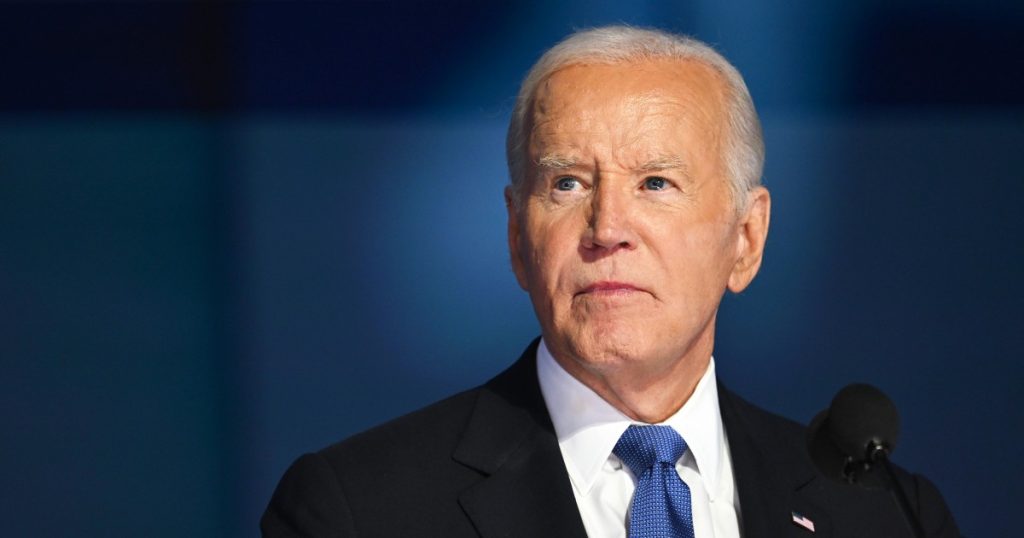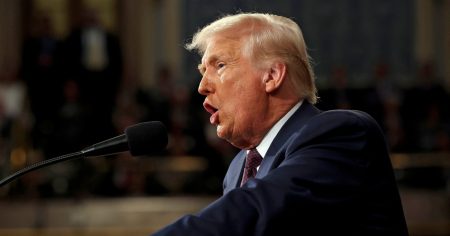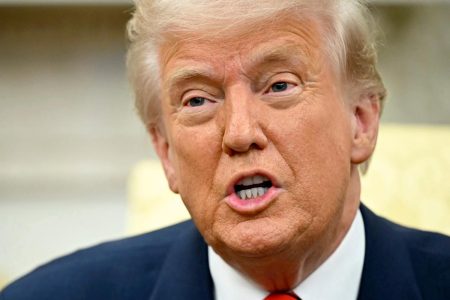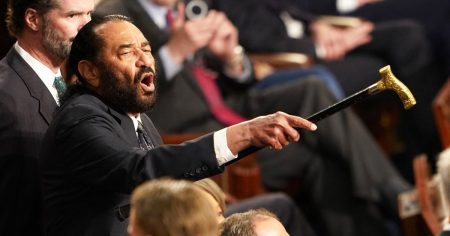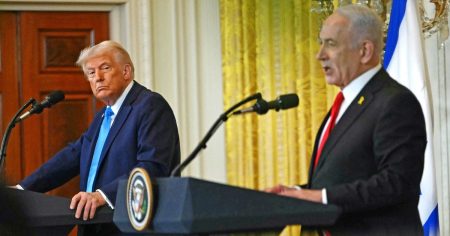President Donald Trump made headlines on Friday by announcing his decision to immediately revoke former President Joe Biden’s access to classified intelligence information. In a post on his social media platform, Truth Social, Trump declared, “There is no need for Joe Biden to continue receiving access to classified information.” He added that he was taking steps to revoke Biden’s security clearances and end his daily intelligence briefings. This move marked the latest development in the ongoing tensions between the two leaders, who have frequently sparred over issues of national security and access to classified materials.
The announcement came as a surprise to many, as the tradition of allowing former presidents to receive intelligence briefings has been a longstanding practice in U.S. politics. Typically, former presidents are granted access to classified information as a courtesy, particularly if they are consulted on matters related to events that occurred during their time in office. However, Trump’s decision to revoke Biden’s access appears to be tied to a broader effort to limit Biden’s involvement in national security matters, following a pattern of public feuds between the two men.
Trump’s move was not without precedent, at least in his own mind. He pointed to a statement Biden made in 2021, shortly after the January 6 attack on the Capitol, in which Biden questioned whether Trump should continue to receive intelligence briefings. At the time, Biden expressed concerns about Trump’s “erratic behavior” and suggested that Trump might inadvertently reveal sensitive information. Trump seize on this statement as justification for his decision, arguing that Biden had “set this precedent” by questioning Trump’s access to classified information.
In addition to citing Biden’s 2021 comments, Trump also referenced a report from former special counsel Robert Hur, who led an investigation into Biden’s handling of classified documents. In his 2024 report, Hur noted that Biden had a “poor memory,” which could potentially impact his ability to handle sensitive information. While Hur ultimately decided not to prosecute Biden, Trump used the report to bolster his argument that Biden was unfit to continue receiving intelligence briefings.
The issue of access to classified information has been a contentious one for both Trump and Biden. In 2023, Trump faced charges related to the mishandling of classified material after leaving office, though he pleaded not guilty and a Florida judge later dismissed the case. The case was briefly revived during Biden’s administration, but it was dropped shortly after Trump began his second term. Now, Trump appears to be using the issue to target Biden, revoking his access to intelligence briefings and security clearances. This move drew criticism from legal experts, who noted that such actions were unprecedented and potentially problematic for the traditions of executive privilege.
The broader implications of Trump’s decision remain unclear, but it is evident that the move reflects the ongoing political rivalry between the two men. By revoking Biden’s access to classified information, Trump is not only escalating their personal feud but also setting a precedent that could have far-reaching consequences for how former presidents are treated in the future. For now, Biden’s office has declined to comment on the matter, and it remains to be seen how this decision will play out in the context of national security and political accountability.


